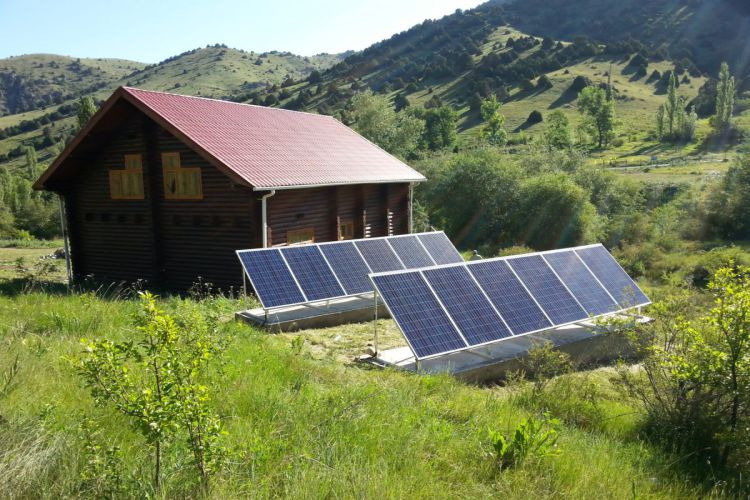 It’s most likely that you are reading this on a device which up until a couple of minutes ago was hooked up to a power supply that comes from a global network of power production. There are power plants all over the world, some use coal, others nuclear fusion and the third variety uses water sources and kinetic energy – what about solar-powered energy production?
It’s most likely that you are reading this on a device which up until a couple of minutes ago was hooked up to a power supply that comes from a global network of power production. There are power plants all over the world, some use coal, others nuclear fusion and the third variety uses water sources and kinetic energy – what about solar-powered energy production?
How to make the transition from on to off-grid living
If you’ve been an urban dweller your whole life, chances are you rarely, if at all, have experienced the lack of electrical power and are used to its constant presence. This can make someone take it for granted and use it in the most inefficient ways, however, there are a lot of environmentally conscious people out there who’d like to make a change, here’s how they can do that.
Benefits of on-grid living
On-grid living is what we are familiar with – having constant access to electricity at any point of the year, at any point of the day. You don’t really have to worry about it running out, but rather have to consider the electricity bill that you will owe at the end of the month.
Aside from that, you have the freedom to work, eat, sleep, clean yourself and anything around you without actually saving energy or budgeting it for later at night. You can be almost as careless as you’d like, as long as you can pay the bills at the end of the month.
Unless there is a major power outage, chances are you will always have access to electricity, regardless of the weather, how cloudy it is outside or how dirty your windows are.
Benefits of full solar power reliance
The benefits of solar power reliance are related to your independence, the beneficial effects it will have on your mental health and the environment around you. Solar power systems require direct sunlight in order to create high amounts of electricity which can be used for the next day or so.
The efficiency of these systems depends on their location, how they have been installed, how well they are being maintained, and the overall investment into power preservation a person has put into when preparing their home or industrial area. This requires careful calculations and considerations of the needs of electrical consumption and the overall availability of sunlight throughout the year.
Pros and cons of both
The pros of on-grid living are that it’s comfortable, however, it requires nearly constant production of electricity from an outside source. There are 3 main ways, two of which can be considered to be harmful to the environment and one can be considered dangerous for the entire planet.
The benefits of off-grid solar power systems are that they don’t have a burden on the world and it makes your home a lot more eco-friendly. However, you don’t really have that much access to electricity during the winter and you have to be conservative when using it.
If you are considering solar power as an alternative or some way of compensation, then we recommend you take a look at ElmarkHolding.eu and their selection of products.











